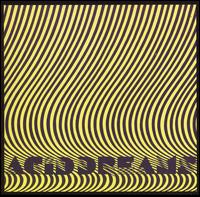Psychedelic folk is a loosely defined form of psychedelia that originated in the 1960s. It retains the largely acoustic instrumentation of folk, but adds musical elements common to psychedelic music.

Nickolas Laurien, known professionally as Nick Nicely, is an English singer-songwriter who records psychedelic and electronic music. He is best known for his 1982 single "Hilly Fields (1892)". Nicely released only one other record in the early 1980s, the single "D.C.T. Dreams", before retreating from the music industry. The influence of "Hilly Fields" has been noted on Bevis Frond, Robyn Hitchcock, Robert Wyatt, and XTC's psychedelic alter egos the Dukes of Stratosphear, as well as the hypnagogic pop movement of the 2000s.

Pebbles, Volume 3, subtitled The Acid Gallery, is a compilation album featuring American underground psychedelic rock musical artists from the 1960s. It is the third installment of the Pebbles series and was released on BFD Records in 1979. The album is marked for containing among the most unusual recordings of psychedelic music.
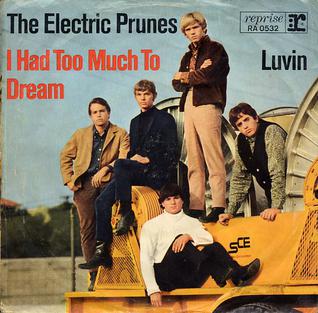
"I Had Too Much to Dream (Last Night)" is a song written with music by Annette Tucker and lyrics by Nancie Mantz, which was recorded in late 1966 by the garage rock band The Electric Prunes. Released as the band's second single, it reached number 49 in the UK and peaked at number 11 on the Billboard Hot 100 the week ending February 11, 1967.

Evergreen, Vol. 2 is the second album from the Stone Poneys, released five months after The Stone Poneys. It was the most commercially successful of the Stone Poneys' three studio albums.

The Stone Poneys is the debut studio album by the Stone Poneys; other than the single of "So Fine" in 1965, this album marks the first official recordings by Linda Ronstadt.
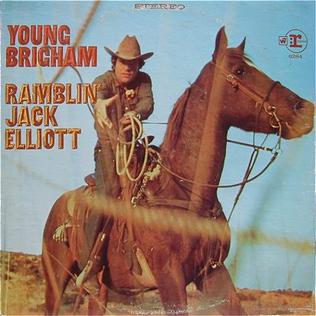
Young Brigham is an album by American folk musician Ramblin' Jack Elliott, released in 1968.
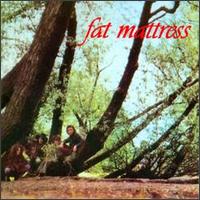
Fat Mattress is the debut self-titled studio album by English rock band Fat Mattress, released on 15 August 1969.

Triangle is the fourth studio album by American rock band the Beau Brummels. Produced by Lenny Waronker and released in July 1967, it was the band's first album to include songs that vocalist Sal Valentino and guitarist Ron Elliott composed together. The band incorporated fantasy elements and surreal characters into the album's song titles and lyrics, and worked with a variety of session musicians to create Triangle's psychedelic musical style. The Beau Brummels were reduced to a trio—Valentino, Elliott, and Ron Meagher—at the time Triangle was recorded, as former group members Don Irving (guitars) and John Petersen (drums) left the band following the release of the group's previous album, Beau Brummels '66.
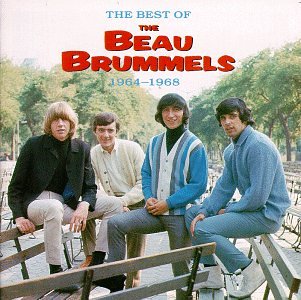
The Best of the Beau Brummels 1964-1968, sometimes titled The Best of the Beau Brummels: Golden Archive Series, is a compilation album by American rock band The Beau Brummels. Released in 1987 by Rhino Records, the album features 18 songs, including the band's biggest hit singles—"Laugh, Laugh", "Just a Little", "You Tell Me Why", and "Don't Talk to Strangers"—as well as songs which never appeared on an album before this collection, such as the 1967 single "Here We Are Again".

San Fran Sessions is a box set compilation which collects 60 demos, outtakes, rarities and unissued performances recorded by The Beau Brummels from 1964 to 1966. The three-disc set, released by Sundazed Records on June 11, 1996, includes alternate takes of the band's singles "Laugh, Laugh" and "Just a Little", as well as early versions of songs that were likely targeted for their never-completed third album on Autumn Records.
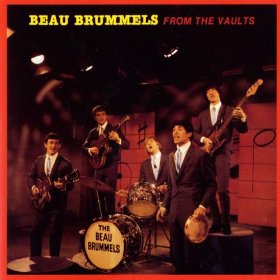
From the Vaults is a compilation album by American rock band The Beau Brummels. It was released in 1982 by Rhino Records, and reissued in 1999 by One Way Records. The album contains 14 songs, including rare or previously unreleased material recorded by the band between 1964 and 1966.
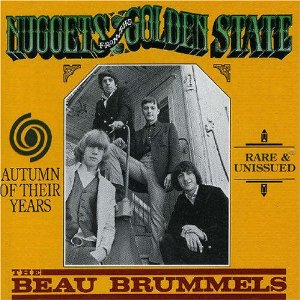
Autumn of Their Years is a compilation album by American rock band The Beau Brummels. It was released in 1994 by Big Beat Records, and re-released in 2003 by Ace Records. The album consists of 26 songs recorded by the band during their stint at Autumn Records, including previously unreleased demos and outtakes.

H. P. Lovecraft II is the second album by the American psychedelic rock band H. P. Lovecraft and was released in September 1968 on Philips Records. As with their debut LP, the album saw the band blending psychedelic and folk rock influences, albeit with a greater emphasis on psychedelia than on their first album. H. P. Lovecraft II failed to sell in sufficient quantities to reach the Billboard Top LPs chart or the UK Albums Chart, despite the band being a popular act on the U.S. psychedelic concert circuit. Legend has it that the album was the first major label release to have been recorded by musicians who were all under the influence of LSD.
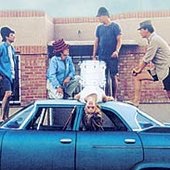
The Driving Stupid was an American garage rock band formed in New Jersey in 1966. The group issued one cult favorite single called "Horror Asparagus Stories" that is most known for its absurd lyrics and psychedelic instrumentals. Though short-lived, the band's sole release has been included on numerous compilation albums. Previously unreleased material by the band was also issued in 2002.

"Action Woman" is a song by the American garage rock band the Litter, written by their record producer Warren Kendrick, and first released as the group's debut single on Scotty Records in January 1967. The song also appeared on the band's first album Distortions. Although "Action Woman" never broke out on the national charts, it is now revered as a classic piece of the musical genre of garage rock. Accordingly, the composition has appeared on several compilation albums – most famously as the opening track on Pebbles, Volume 1, incorporating a skip in the recording – and has been the subject of cover versions.

The Velvet Illusions, also known as Georgy and the Velvet Illusions and the Illusions, were an American garage rock band formed in Yakima, Washington in 1965. The group, with influences spanning from R&B standards, the British Invasion, to early psychedelia, released five singles in their brief recording career. Despite never breaking out nationally, the band's music has been revived, thanks, in large part, to its inclusion on several compilation albums, most notably Where the Action Is! Los Angeles Nuggets: 1965–1968.

Behold & See is the second album by the American psychedelic rock band Ultimate Spinach, and was released on MGM Records in August 1968.
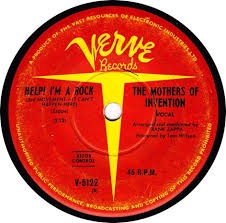
"Help, I'm a Rock" is a song written by American musician Frank Zappa. It was recorded by Zappa along with the rock band the Mothers of Invention on the group's debut album Freak Out!, which was released on Verve Records on June 27, 1966.
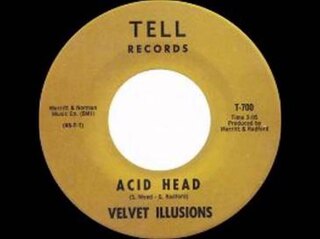
"Acid Head" is a song recorded by the American garage rock band the Velvet Illusions. It first appeared as the A-side to the group's debut single, which was released on Tell International Records in mid-1966. The writing of the composition is credited to keyboardist Steve Weed and the group's manager George Radford, however, it is reported that "Acid Head" actually originated from an outside composer. At the time of its first release, the tune suffered from limited radio-play time. Over time, "Acid Head" has since become recognized as a garage rock classic and is widely accessible on multiple compilation albums.
